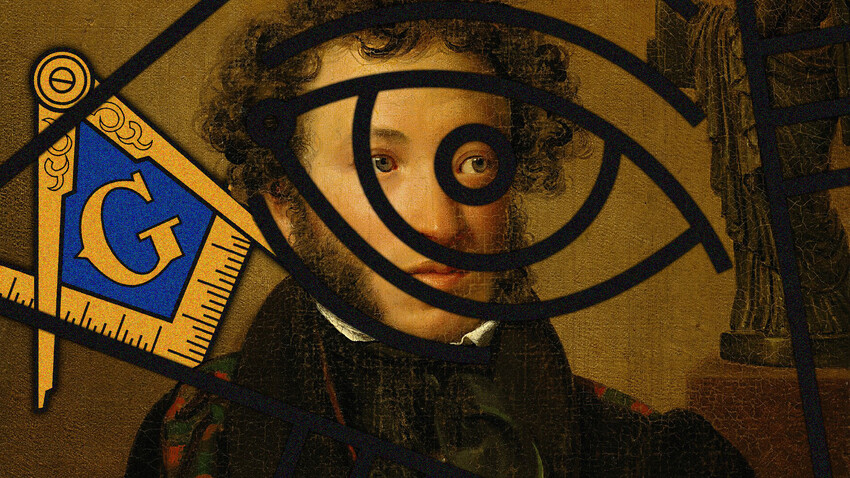
"On May 4, I was installed as a Freemason," Alexander Pushkin wrote in his diary in 1821. "I was a Freemason in a lodge in Chisinau," he would also later write in a letter to fellow poet Vasily Zhukovsky.
Pushkin even grew himself a long nail on his little finger, which he was afraid to break and closed with a special cap at night. Such a nail was an unofficial sign of the Masons.
Surprisingly, apart from the words of Pushkin himself, no data on his Freemasonry has been found.
"Pushkin should be exiled to Siberia: He flooded Russia with outrageous poems, all the young people recite them by heart," Emperor Alexander once said to Egor Engelhardt, director of the Tsarskoye Selo Lyceum. It was only thanks to the intercession of Nikolai Karamzin that it was possible to replace the exile to Siberia with a transfer to Chisinau, to the office of General Ivan Inzov, the governor of Bessarabia.
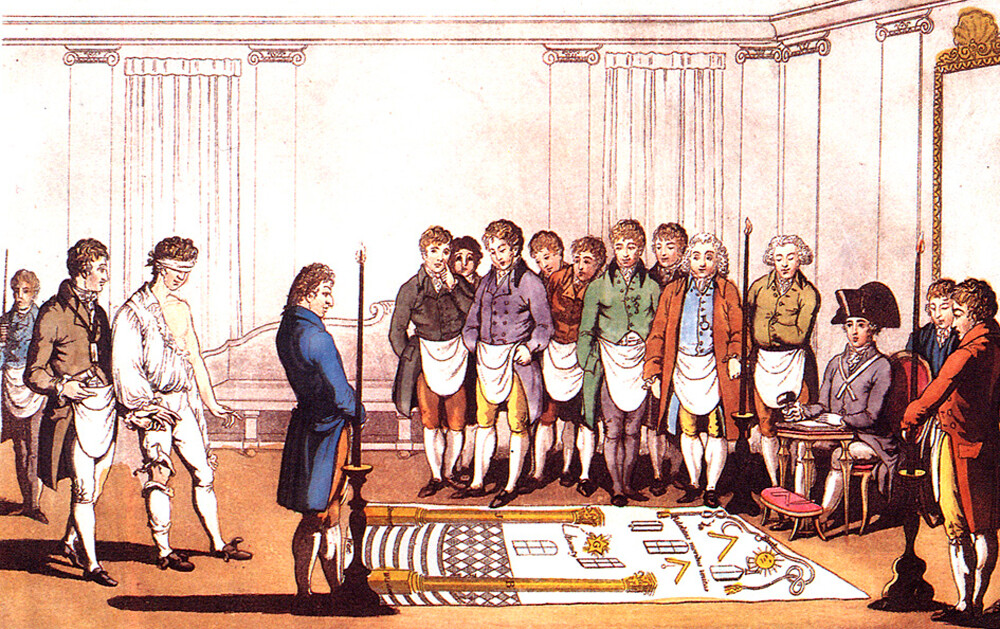
A masonic initiation. Paris, 1745.
Public DomainAlmost all significant people in Pushkin's inner circle were Freemasons. His father, Sergei Lvovich, became a full member of the Masonic lodge in 1817, while his uncle, Vasily Lvovich, did this even earlier, in 1810. Pushkin's closest friends, poets Pyotr Vyazemsky and Vasily Zhukovsky, were also members of Freemason lodges. But, Pushkin himself was in no hurry to become a mason.
In 1907, Nikolai Kulman in the book ‘On the History of Freemasonry in Russia’ pointed out: "The Chisinau ‘Ovid’ Lodge was established on July 7, 1821," and, on September 17, 1821, the Grand Lodge of ‘Astraea’ (one of the main Masonic organizations in the Russian Empire at that time) "granted the constitution to a new lodge, which opened in Chisinau, Bessarabia, under the name ‘Ovid’ and assigned it the number ‘25’.
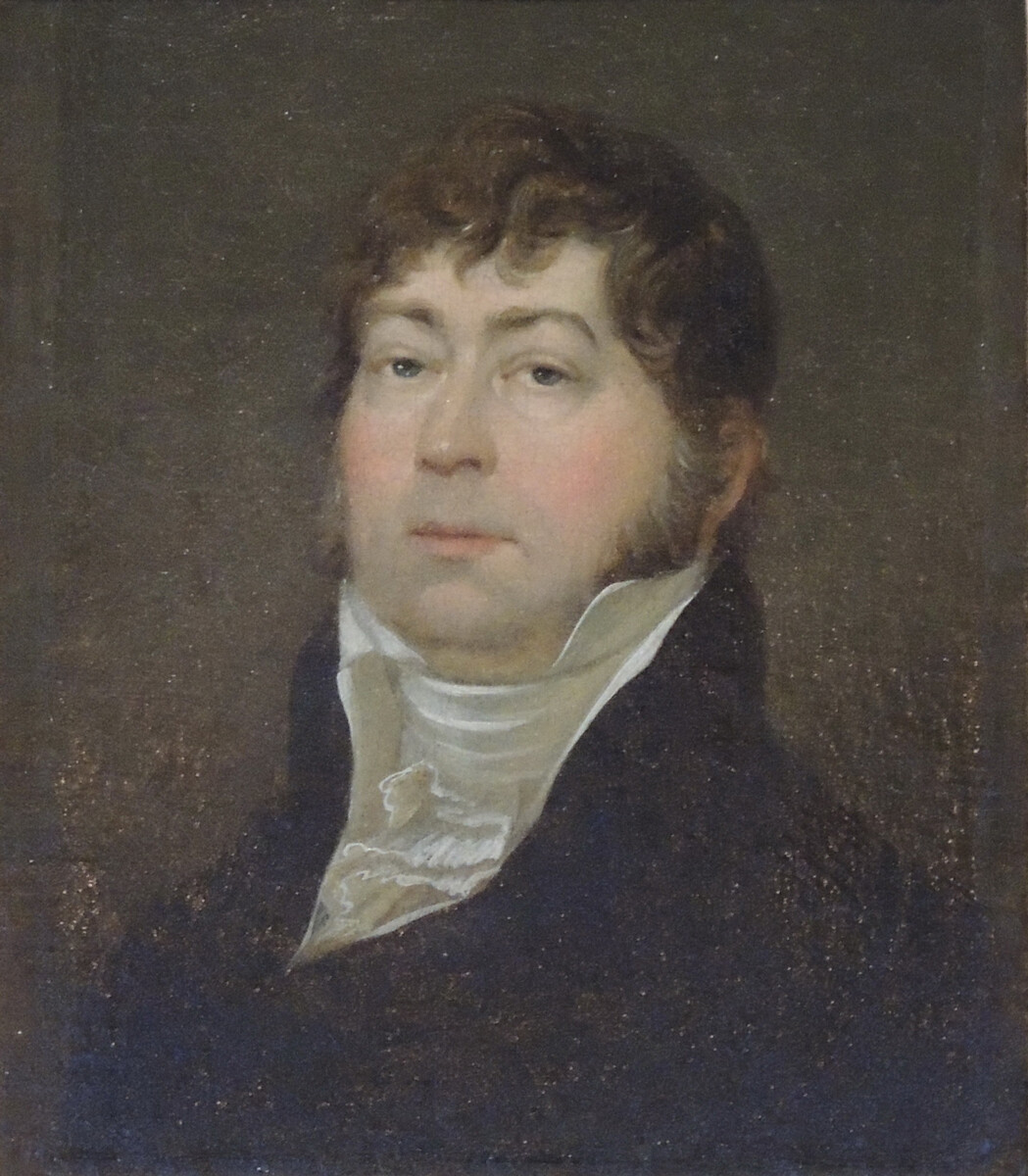
Vasiliy Lvovich Pushkin, the poet's uncle
Public DomainMoldovan historian Boris Trubetskoy in his study ‘Pushkin in Moldova’ writes: "Materials confirming admission to the Chisinau lodge of A. S. Pushkin… were not found." How could it happen that Pushkin, according to his own diary, was "accepted as a Freemason" in Chisinau even before the establishment of the ‘Ovid’ Lodge?
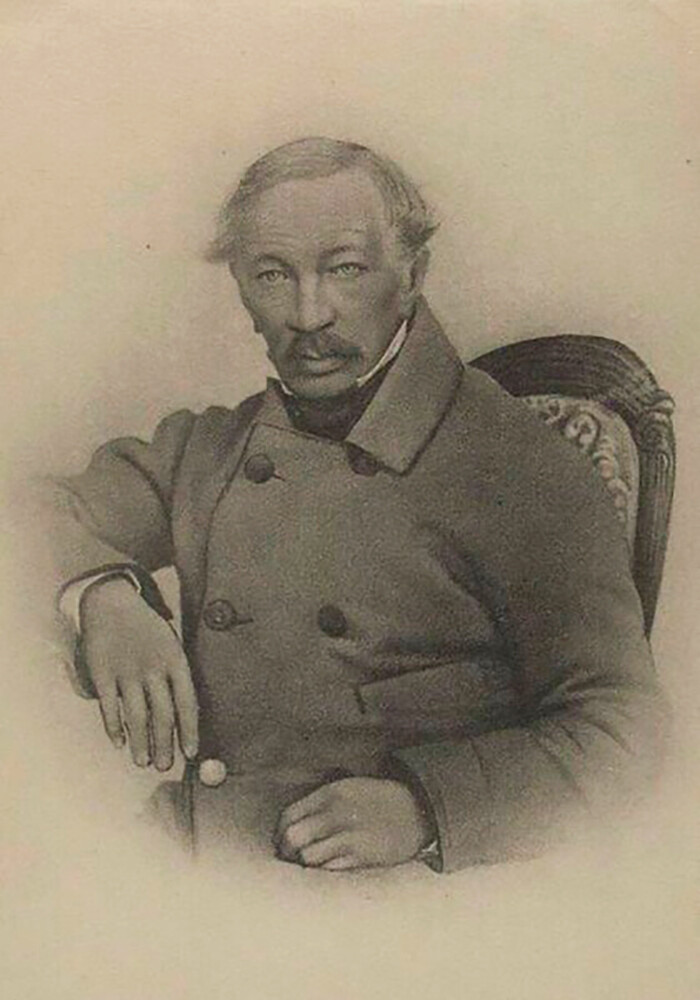
General Pavel Pushchin, the organizer of the Chisinau lodge
Public DomainBoris Trubetskoy writes that members of the future ‘Ovid’ lodge were gathered by Pavel Pushchin, the founder of the lodge, even before its foundation, "and Pushkin was accepted at a time when Pushchin, in modern terms, was only planning the future lodge". But, this is only Trubetskoy's assumption, not based on any documents.
As Nikolai Kulman rightly pointed out: "It is difficult to say what role he played in it (in the lodge – ed.), but, it is unlikely that this role, due to the nature of Pushkin's character and the short-lived nature of the lodge itself, could be significant. It is very possible that Pushchin attracted him at first only as a profane (a profane in Freemasonry is someone who is not a member of the brotherhood).”
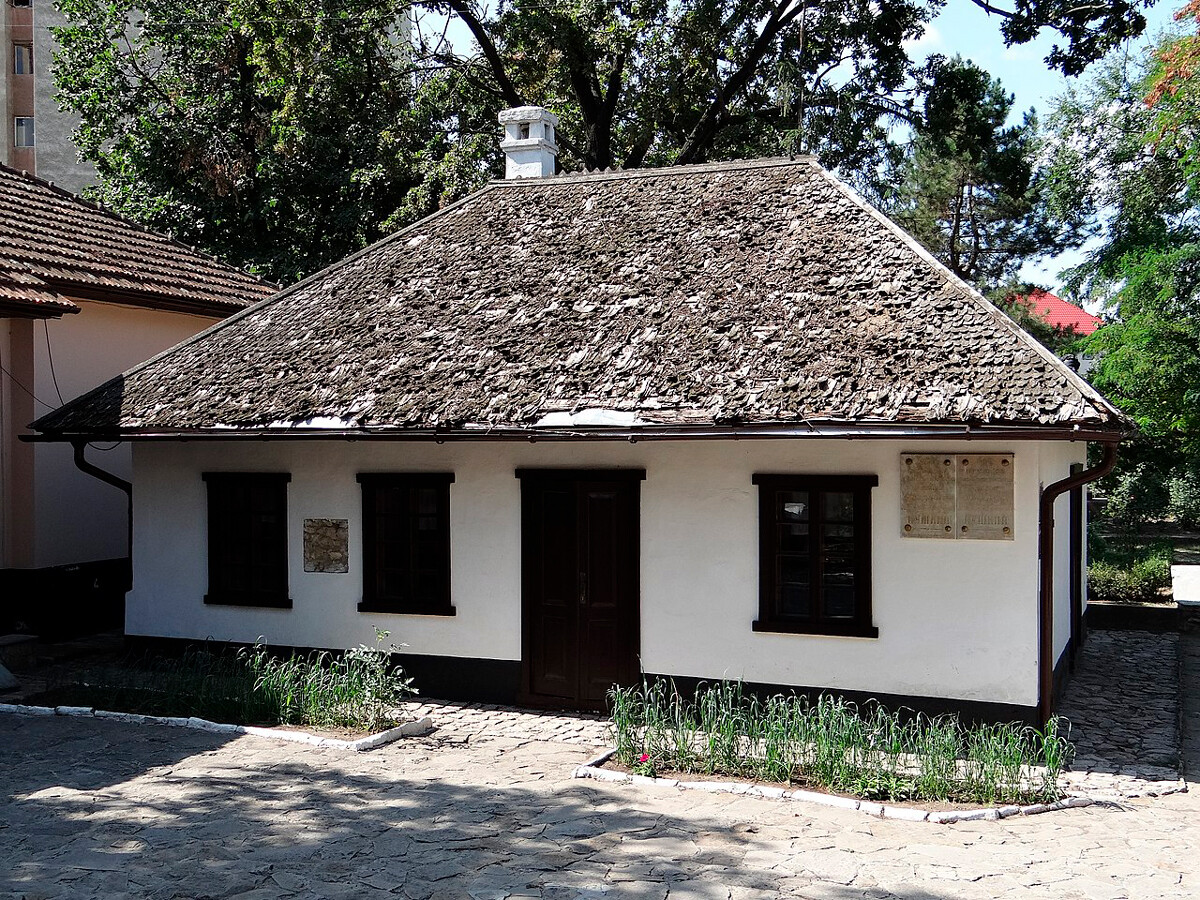
The house in Chisinau where Alexander Pushkin was staying
Adam Jones (CC BY-SA 2.0)Is it possible that Pushkin's membership in the lodge was so secret that no documents existed about it? Even if this is the case, he still cannot be considered a full–fledged Freemason, because the Chisinau ‘Ovid’ lodge had not begun to operate yet.
Masonic organizations were under constant surveillance by the Russian government, which suspected them of plotting against the state. Rumors about the existence of the ‘Ovid’ Lodge and the possible Freemasonry of Pushkin eventually reached the emperor. On November 19, 1821, the Chief of the General Staff, Prince Peter Volkonsky, wrote to General Inzov: "Regarding Mr. Pushkin, also inform his Imperial Majesty what his occupations are and have been since he has been posted under your supervision, how he behaved and why did you not pay attention to his membership in Masonic lodges?" However, Inzov replied to his superiors on December 1: "I can assure Your Majesty that there are no Masonic lodges in Bessarabia."
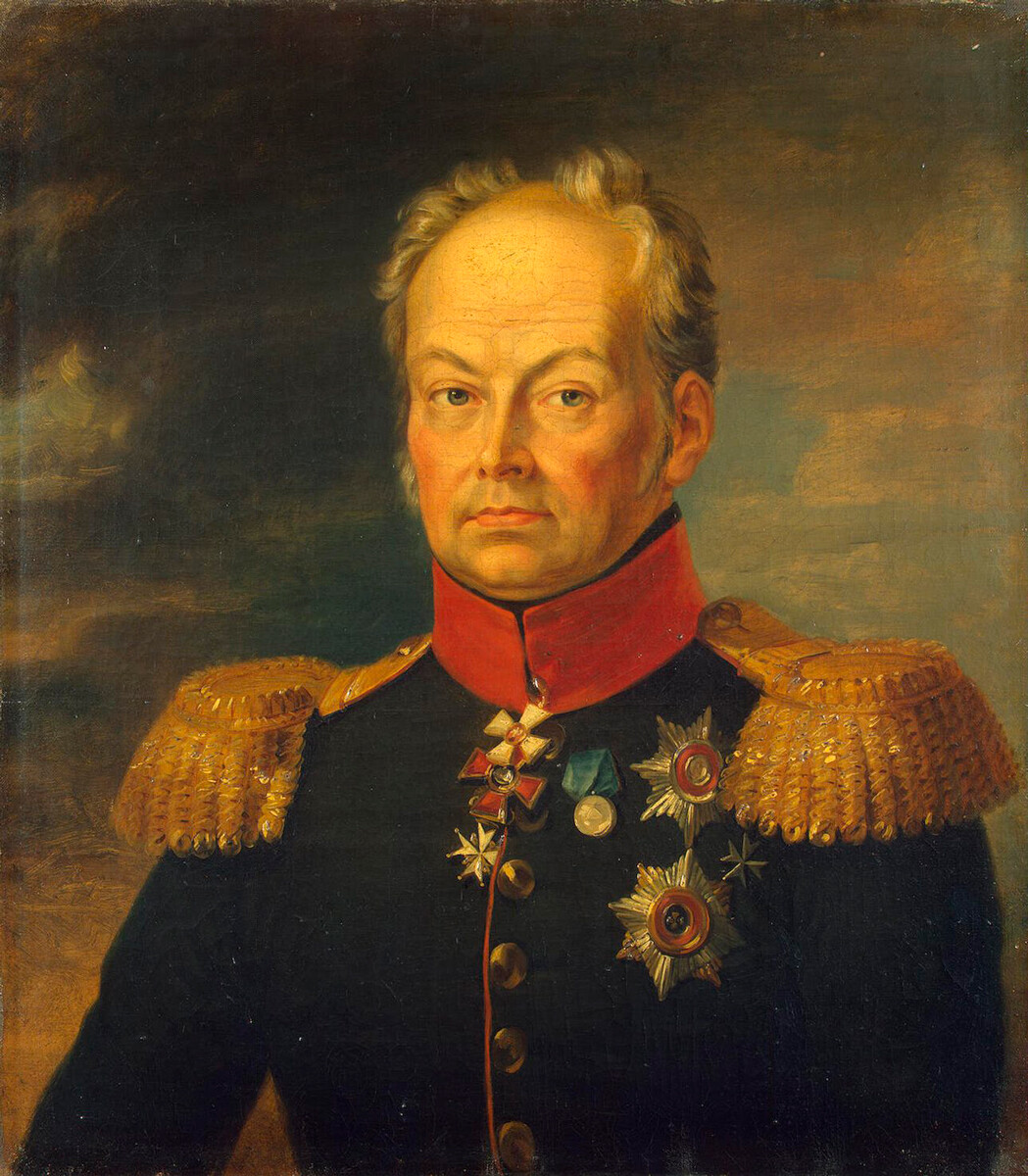
General Ivan Nikitich Inzov by George Dawe
HermitageInzov did not deceive Volkonsky. Boris Trubetskoy explains: "Although the ‘Ovid’ Lodge was approved by the protocol of the Grand Lodge of ‘Astrea’ (however, only up to the so-called installation, i.e., the formal admission to Freemasonry of new members of the Chisinau Lodge by a representative of the Grand Lodge of ‘Astrea’), any new lodge was considered not authorized and its work only temporarily permitted. And, since the ‘Ovid’ lodge did not pass the installation stage, Inzov could easily write that the lodge did not exist in Chisinau."
And, although, on January 20, 1822, the Grand Lodge of ‘Astraea’ duly informed the Provincial Grand Lodge in England that the ‘Ovid’ lodge was opening in Chisinau, Freemasonry in Russia did not have much time left. On August 1, 1822, Emperor Alexander I signed a rescript ‘On the prohibition of secret societies and Masonic lodges’. After that, the activity of Freemasons in Russia practically ceased.
There is no information about any other Masonic activity of Pushkin. So, if the great poet sympathized with the Freemasons and even if he was going to become a member of the brotherhood, he never managed to do it.
However, it was certainly very fashionable to belong to secret societies. This gave a man an aura of mystery and importance. Pushkin could not neglect this and gladly supported the legend of his Freemasonry.
If using any of Russia Beyond's content, partly or in full, always provide an active hyperlink to the original material.
Subscribe
to our newsletter!
Get the week's best stories straight to your inbox